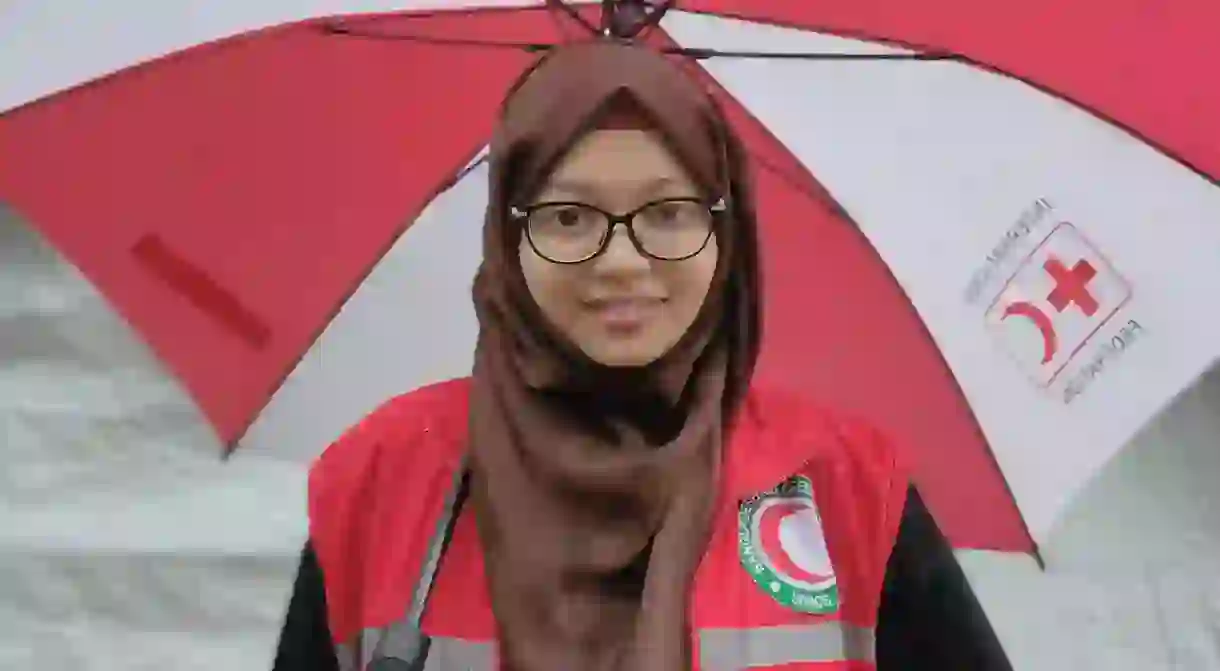One Healthcare Worker’s Experience in a Refugee Camp During Coronavirus

Dr Mumtaz Hussain, 30, is a surgeon with the Red Crescent in Bangladesh. In June, she started a new job working with the largest group of displaced people in the world. She tells Culture Trip what life is like during the pandemic – and how she stays cheerful.
They say coronavirus doesn’t discriminate – but living in extreme poverty, with up to 10 people in a tent, and with water in scarce supply, there’s no doubt the virus could wreak havoc in camps of displaced people. In these environments, social distancing is impossible. And why would you waste water for drinking by washing your hands in it?
Cox’s Bazar, in Bangladesh, is home to the largest refugee population in the world, with more than 850,000 Rohingya people crammed into 34 centres. This largely Muslim community fled Rakine State in neighbouring Myanmar in 2017 after persecution by the government – a charge that Myanmar’s leader, Aung San Suu Kyi, denies.
Dr Mumtaz Hussain is acting chief medical officer for the Red Crescent; she arrived here in June 2020 as part of a Covid-19 response team. Having trained as a surgeon in reconstructive surgery, she found she didn’t have any patients in her hospital in Dhaka, as non-essential operations had been suspended during the pandemic.
“I saw an ad for this job and I thought it was perfect,” she says. “We’ll all want to tell our families in the future about where we were and what we did when coronavirus happened.”
She had never seen a refugee camp before, let alone worked in one. How has she found it? “When I first arrived, I was amazed by the huge number of foreign aid workers there are here,” she says. “It’s really inspirational to see all these volunteers, who’ve come from developed as well as underdeveloped countries, to help the displaced people.”
And how are the conditions? “Shocking,” she says bluntly. “It’s very cramped, often with a family of 10 in one tent. And it’s so unhygienic – the kids are playing in the drains that are full of waste water – but you know, they don’t seem to mind, they’re used to it.”
Dr Hussain is stationed in the camp herself. “I’d never slept in a tent before,” she laughs, “and it’s monsoon season right now, so it’s really noisy at night, with the rain drumming on the roof of the tent.”
Outside it’s pretty muddy, and slippery. “We’re up quite a steep hill, so it’s a struggle going up and down in gumboots – but I haven’t fallen over in it yet.”

She shares her tent with another healthcare worker, and they have become close – she says colleagues are like family to her now. “We all eat and relax together, and we keep each other’s spirits up. There’s a real camaraderie among us. We share our problems – and always try to laugh them off. We really do try to see the funny side in everything.”
Does she miss her own family? In fact, they are scattered across the world. Her parents live in Oman, where she and her siblings were raised, and where her youngest brother still lives. (She only came to her native Bangladesh in her teens to study.) Another brother lives in Germany, while her sister and family are in the Bangladesh capital, Dhaka, 185mi (300km) away. “We’ve always lived like this,” she says, “so it’s no hardship.”
The weather can’t help right now, with the monsoon flooding the camp regularly, but Dr Hussain doesn’t seem to mind. “We’re not supposed to go out in the rain if we don’t have to, but actually it’s quite fun. We’re supplied with umbrellas and gumboots, and they all get wiped down with chlorine solution before we go inside the hospital.”
The Covid-19 figures in Cox’s Bazar are remarkably low. Within the wider area, Dr Hussain tells me, there are just over 3,000 cases, with 52 deaths, and at the camp itself, there are 60-odd cases among the displaced community, with six deaths. But she admits that testing is minimal, and there is actually a stigma attached to people who get the virus, so they’re not coming forward. Besides which, many people are anxious about being separated from their families if they have to go into hospital.

However, the work of the humanitarian agencies is paying off, says Dr Hussain. There’s an army of community volunteers going door to door, distributing PPE, hand sanitiser and soap. They’re also educating people on the use and safe disposal of PPE, as well as on cough etiquette and social distancing, and many agencies are working with the imams to help prevent misinformation spreading. ActionAid has also set up a women-friendly space where they are trained to make masks.
Does Dr Hussain have any regrets about coming here? “None whatsoever,” she laughs. “I’m so inspired by all the people volunteering here who work so hard. Besides, it’s my duty.”
There’s something relentlessly cheerful about Dr Hussain. How does she manage it? “The conditions are difficult,” she admits, “but you have to stay positive. I came here because I wanted to help, and every day is different – it’s all a new experience and I’m learning a lot.”
To donate to the Disasters and Emergencies Committee, please visit their website here.













